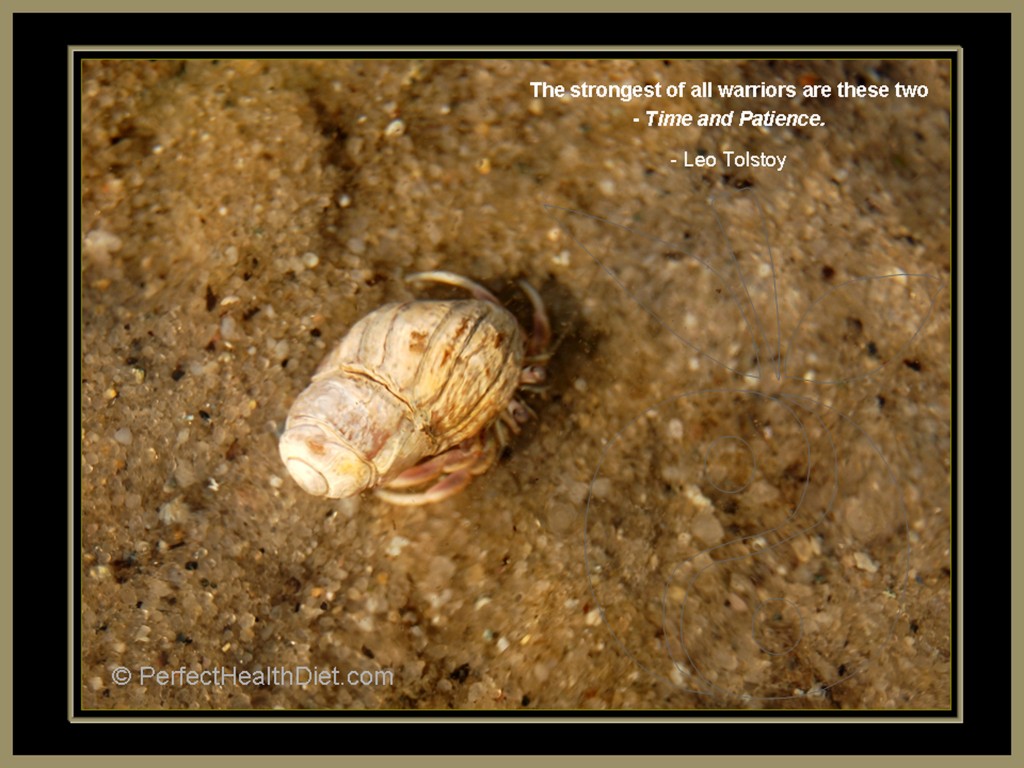Happy Labor Day weekend to our American readers.
I’m pleased to be able to announce a few upcoming talks:
- On September 17 in York, Maine. I’m awaiting details and will provide an update when I get them.
- On October 2, we’ll speak to the Living Paleo in Boston group, on the topic “Common Pitfalls of Eating Paleo.” Thanks to Amit and Shilpi Mehta for hosting the event and suggesting the topic. Unfortunately this one is already full.
[1] Interesting posts this week: Chris Kresser and Stephan Guyenet are organizing a weight loss trial. It will test a low-food-reward eating plan against a control group who “will be asked not to change diet or lifestyle.” To be eligible, you
must not currently be weight reduced relative to a prior weight [and] must not currently be on a weight reducing diet (low-carbohydrate, low-fat, Paleolithic, Zone, Ornish, etc).
Since the control group will be eating diets that have given them the highest weight of their lives, I predict the low-food-reward diet will outperform. (NB: There is nothing wrong with jumping over a low hurdle before attempting tougher tests.) If you qualify, please consider participating in this trial.
In another post, Chris points out that people with low T3 in intensive care units have the worst outcomes, but supplementing T3 doesn’t help them. A helpful reminder that hormone levels, for the most part, are adaptive responses and can’t easily be improved on. You have to address underlying causes.
Gary Taubes introduces a new series on his blog, in which he will reply to his critics. Stephan Guyenet wrote a counter-post. You won’t miss much if you wait for them to get to the substantive posts.
Peter Dobromylskyj of Hyperlipid has replied to an earlier post by Stephan. I think Peter does a fair job of getting at the weakness in the food reward theory of obesity: there is no obvious mechanism by which eating rewarding foods produces the metabolic damage that is found in the obese; whereas it is quite easy to see how metabolic damage can disrupt the brain’s food reward system. However, this same line of argument works against Taubesian insulin-carbohydrate theory: one needs metabolic damage before insulin can cause problems. Key line in Peter’s post: “Once you are insulin resistant carbohydrates become spontaneously fattening.” This is a sort of admission, also made by Taubes, that metabolic damage comes first, then carbohydrates and insulin become a problem. But what causes metabolic damage? Peter hints that (possibly inherited) epigenetic damage from past fructose consumption is the culprit. I think this is not quite adequate, but it is great that Peter is putting forth a hypothesis. I wonder if Gary Taubes in his series will offer any opinions on the “first cause” of obesity.
Melissa McEwen (“Good Books, Bad Taubes”) sums up Gary’s legacy: His defense of fats improved a lot of people’s health, but some of his ideas are unsupported by the evidence. Since truths are precious as jade, errors easily discarded, that’s a resumé to be proud of.
Seth Roberts, who pioneered the treadmill desk, is on to the next big thing: the lounge-office.
Emily Deans says homocysteine can degrade arteries and bones, and maybe cause psychosis. Best to stay well-nourished.
Jenny Ruhl wonders if plastics may be responsible for the diabetes and obesity epidemics. Bix at Fanatic Cook says NSAIDs damage joints. It’s hard to keep up with all the villains.
Jamie Scott reports the Tokelauan eating schedule: nothing but coconut milk in the morning, followed by a “substantial meal at midday, and another main meal in the late afternoon.” This closely resembles our recommended plan for ketogenic intermittent fasting.
Bryan Caplan says Pinocchio’s doctors were canny diagnosticians.
Jenny at Nourished Kitchen has lists of micronutritious foods. Liver is #1.
Danny Roddy is offering his “Hair Like a Fox” pdf book free to anyone who “likes” his Facebook page.
I was disappointed to read that the Japanese government is confiscating iodine tablets, so that supplements are impossible to obtain. This is hard to fathom because the reactors may still be generating radioactive iodine, and iodine supplements are an effective defense (see Iodine, the Thyroid, and Radiation Protection, Mar 17, 2011).
Probiotics can reduce anxiety and improve mental health. Exercise also helps.
Hey, Europeans! Cover your mouth when you sneeze! Microbes can cross oceans. Also, bacteria developed antibiotic resistance 30,000 years ago.
I bet John Durant has this too: A part of the human brain is dedicated to reacting to animals.
Anthony Bourdain attacks Paula Deen – for using butter!?!
[2] Music to read by: Ah yes, the golden age of rock and roll, when musical giants chicken-danced the earth:
(This was a Dutch comedian. The real Trashmen may be seen here.)
[3] Picky eater:
[4] Notable comments this week:
- Kate points to a paper confirming that protein deficient diets cause low T3 and high rT3. It’s not just glucose deficiency.
- Scott points to a paper showing that lower cholesterol was associated with longer lifespan. Do lipid-deficient diets, like protein-restricted and carb-restricted diets, extend lifespan?
- Ludy Feyen on Facebook points to a report that potatoes reduce blood pressure. The very first comment on the article? “Slightly lower blood pressure at the expense of strong blood-sugar spike and it subsequent insulin spike? NO THANK YOU POTATO STUDY!” Where did potato-phobia come from? Even Walter Willett has it.
- Michelle has a great story of how a stool test helped her uncover chronic infections and start on the road to healing.
- Pascal pointed out that Vitamin C helps normalize cortisol (paper, paper).
[5] Don’t tell my nieces: This shark might be chasing them on Christmas Day:
[6] Happy Beaks: The best penguin movie yet?
[7] Shou-Ching’s Photo-Art:
[8] Inspiration: Ami Sano is a Japanese girl born with no arms and only one partially formed leg. At age 21, she is already a published writer (two books) and singer. This music video features her childhood:






















Recent Comments